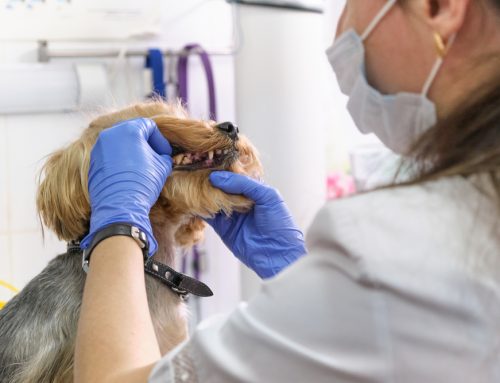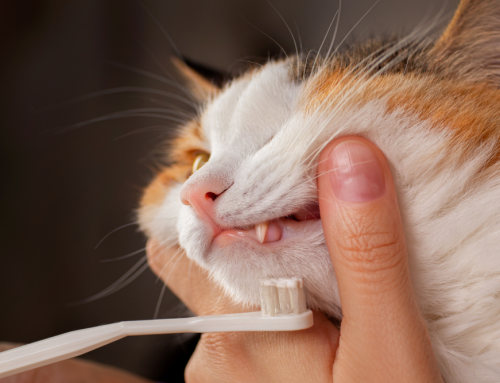Recognizing and Alleviating Stress and Anxiety in Dogs and Cats at Westerville Veterinary Clinic
What is Pet Anxiety and Why Does It Matter?
Stress and anxiety are emotional responses in pets that can significantly impact their physical health and behavior. Similar to humans, when pets like dogs and cats feel threatened or uneasy, their bodies release stress hormones such as cortisol and adrenaline. These hormones can lead to various symptoms, including weight loss, compromised immune function, and gastrointestinal issues. Addressing these issues is crucial for the health and well-being of pets and maintaining a harmonious family environment. Recognizing signs early and managing these conditions effectively can prevent more severe health problems, such as chronic anxiety disorders or entrenched behavioral issues.
Common Signs of Anxiety in Dogs
Dogs exhibit anxiety in various ways, including:
- Excessive barking or howling: Particularly when left alone or under stress, which can strain relationships with neighbors and disrupt household peace.
- Unusual aggression: Toward other animals or humans, which is out of character and may lead to dangerous encounters.
- Destructive behavior: Such as chewing furniture or digging, potentially leading to ingestion of harmful objects or injury.
- Pacing and restlessness: Inability to settle, constantly moving around, which may indicate an elevated heart rate and stress levels.
- Frequent, excessive grooming: Licking more than usual to the point of causing skin irritation or infection.
For more details, read about Separation Anxiety in Dogs – ASPCA.
Typical Signs of Anxiety in Cats
Cats, while often more stoic, also show signs of anxiety, such as:
- Hiding more than usual: A sign they do not feel safe, which can lead to social withdrawal and further stress.
- Excessive grooming: Leading to bald patches or skin lesions, potentially resulting in secondary skin infections.
- Changes in eating or bathroom habits: Eating less or more, or changes in litter box use, which could indicate stress-related gastrointestinal issues.
- Increased lethargy or aggression: Significant changes in activity level or behavior, potentially signaling a deeper health issue.
- Unexplained scratching of furniture: More than usual and often directed at new objects or areas, indicating territorial stress or discomfort.
Causes of Stress and Anxiety in Pets
Several factors can trigger stress and anxiety in pets:
- Changes in the environment: Such as moving house or the addition of new family members or pets, which can disrupt their sense of security.
- Loud noises: Fireworks, thunderstorms, and other loud noises can provoke anxiety. For more information, read about Safe and Sound: Noise Aversion in Pets.
- Separation from owners: Many pets experience anxiety when apart from their family members, leading to destructive behaviors or depression.
- Past trauma or abuse: Previous negative experiences can lead to persistent fears and anxieties, impacting their ability to form new positive relationships.
- Other underlying health issues: Health issues can also manifest as symptoms of anxiety, necessitating a thorough veterinary examination to rule out medical conditions.
Effective Strategies to Help Your Pet Cope with Stress and Anxiety
At-Home Remedies to Reduce Pet Anxiety
Helping your pet manage anxiety at home involves:
- Creating a safe and quiet space: A dedicated area where your pet can feel secure and retreat when overwhelmed, equipped with their favorite toys or a comfortable bed.
- Routine and structure in daily activities: Consistent schedules for feeding, walks, and bedtime help reduce anxiety by providing predictability, which is comforting for pets.
- Calming toys and anxiety wraps: These can provide comfort and reduce stress, functioning similarly to a comforting hug.
- Regular exercise and play: Physical activities help mitigate anxiety by burning off excess energy and stimulating their minds, reducing the likelihood of destructive behaviors.
Behavioral Training Techniques for Anxious Pets
Training can significantly alleviate anxiety:
- Basic commands and obedience training: Helps build confidence and security in their environment, providing a mental framework for responding to stressors.
- Desensitization techniques: Gradually exposing them to their fears under controlled circumstances can reduce reactions over time, helping pets learn that perceived threats are not harmful.
- Benefits of professional dog training programs: These can address specific anxieties with expert guidance, often involving tailored approaches that suit the individual pet’s needs.
- How to foster a secure attachment: Building a strong bond through consistent, positive interaction and training helps develop trust and reduce anxiety-related behaviors.
When to Consult a Veterinarian at Westerville Veterinary Clinic
It’s important to recognize when professional help is needed:
- Signs that it’s time to seek professional help: If home remedies and training aren’t enough, or if anxiety is severe, leading to health deterioration or aggressive behaviors.
- How veterinarians diagnose anxiety in pets: Through a combination of behavioral assessments, medical evaluations, and possibly diagnostic tests to rule out underlying health issues.
- Treatment options available: Including medication, therapy, and customized treatment plans that may include dietary changes or supplements.

Contact Westerville Veterinary Clinic Today
If you have concerns about your pet’s mental health, we are here to help. Early intervention can prevent the progression of anxiety into chronic conditions, maintaining your pet’s quality of life.
Visit our Contact Us page or check out our Homepage for more information on our services.
Optimizing the health and happiness of your pet is our priority. Let us assist you in enhancing your pet’s quality of life through meticulous, compassionate care.
FAQs About Pet Anxiety
Q: How can I tell if my pet’s anxiety is an emergency?
A: Signs of an anxiety emergency may include self-harm behaviors, such as biting or excessive scratching, refusal to eat for more than 24 hours, or aggression that escalates quickly. In these cases, immediate veterinary attention is recommended.
Q: Can anxiety in pets lead to long-term health issues?
A: Yes, if left untreated, anxiety can lead to chronic stress, which may result in immune suppression, gastrointestinal disorders, and even cardiovascular issues in severe cases.
Q: What can I do to prevent my pet from developing anxiety?
A: Prevention strategies include socializing your pet early, maintaining a consistent routine, providing plenty of physical and mental stimulation, and ensuring a safe, secure environment where your pet feels loved and protected.
Any questions, concerns, or ideas? Please contact Dr. Jess Trimble at content@digitalempathyinc.com.







Leave A Comment